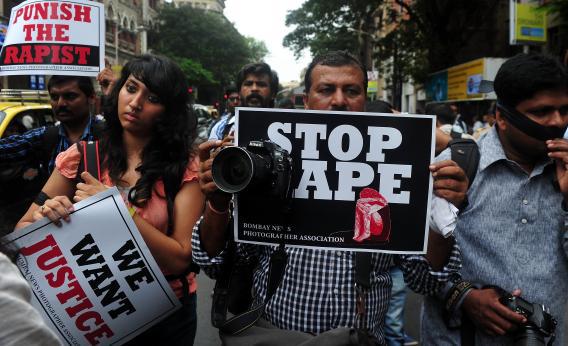India has once again been shocked by the gang rape of a young woman, this time a 22-year-old magazine intern who was on assignment photographing run-down buildings in Mumbai. The woman has undergone surgery and is reportedly in stable condition. A male colleague who was with her at the time was also beaten and tied up during the assault. Police have arrested one man for the crime and are seeking four others. The event has been particularly disturbing, casting doubt on the safety of women in Mumbai, where rapes are far less common than in other parts of the country.
It also comes shortly before the conclusion of the trial of four men and one juvenile accused of the gang rape of a 23-year-old student on a New Delhi bus last December. The woman eventually died from her injuries. The Wall Street Journal notes that 24,915 rapes were reported in India in 2012; the actual number of rapes is thought to be much higher. In 2010, only around a quarter of alleged rapists were convicted.
The New Delhi case led to the institution of tougher rape laws in March as well as the establishment of a special “fast track court” for especially brutal cases. Rape trials can often drag on for years in India’s overburdened justice system, which has approximately 11 judges for every million people, compared with 110 per million in the United States. Even the expedited trial has now dragged on for seven months. Prosecutors are also pushing for the death penalty in the case, which is used very rarely in India.
Mumbai Police Commissioner Satyapal Singh says he has asked that perpetrators of the latest attack also be tried in a fast-track court. It’s obviously good that authorities are taking these high-profile cases seriously, but hopefully the public outrage will also translate into institutional action on the thousands of cases that don’t make international headlines or bring protesters into the streets.
